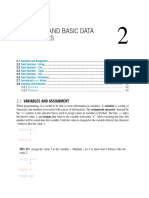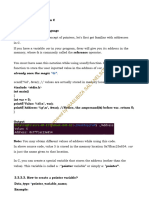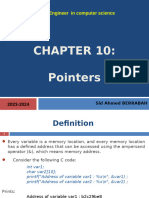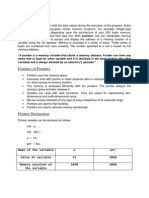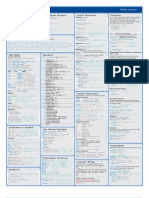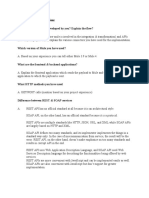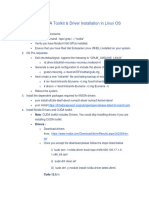0% found this document useful (0 votes)
17 views17 pagesPython Reference Semantics Guide
The document explains reference semantics in programming, particularly how assignment manipulates references rather than copying objects. It highlights the difference between mutable and immutable data types, illustrating how changes to mutable objects affect all references to them. Examples demonstrate how variable assignments and modifications work, emphasizing the importance of understanding references to avoid unexpected behavior in code.
Uploaded by
Ross LyngdohCopyright
© © All Rights Reserved
We take content rights seriously. If you suspect this is your content, claim it here.
Available Formats
Download as PPT, PDF, TXT or read online on Scribd
0% found this document useful (0 votes)
17 views17 pagesPython Reference Semantics Guide
The document explains reference semantics in programming, particularly how assignment manipulates references rather than copying objects. It highlights the difference between mutable and immutable data types, illustrating how changes to mutable objects affect all references to them. Examples demonstrate how variable assignments and modifications work, emphasizing the importance of understanding references to avoid unexpected behavior in code.
Uploaded by
Ross LyngdohCopyright
© © All Rights Reserved
We take content rights seriously. If you suspect this is your content, claim it here.
Available Formats
Download as PPT, PDF, TXT or read online on Scribd
/ 17









